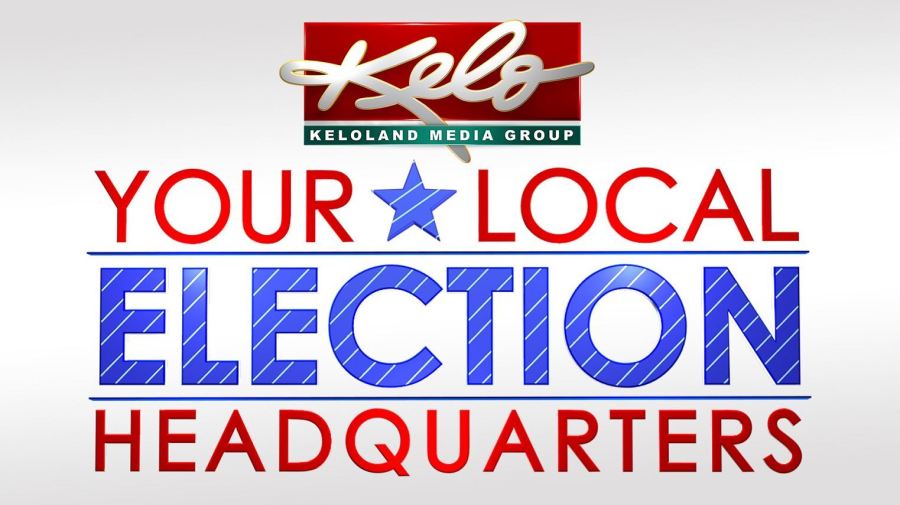SIOUX FALLS, S.D. (KELO) — South Dakota voters who know how they will vote will reject five of the proposed ballot measures in the upcoming 2024 General Election, according to an exclusive KELOLAND/The Hill poll conducted by Emerson College.
The poll surveyed a sample of 825 likely voters on five of the seven statewide ballot questions. Those five were Amendment G, Amendment H, Initiated Measure 29, IM28 and Referred Law 21.
The poll has a margin of error of 3.3 percentage points. At 3.3, it means that if the survey was done 100 times, it is expected the result to be within 3 percentage points of the true population value 95 of those times. It is well within the acceptable range for polls.
Be informed on the seven 2024 ballot measures
A total of 20 questions were included in the survey, which included answers from online panels, landline phones and mobile phones.
Below are the results from the statewide ballot questions, while the results on the Presidential race, South Dakota’s U.S. House Race, important issues to South Dakota voters and approval ratings will be shared Friday morning. KELOLAND News will have reaction to ballot measure polling Thursday night online and on KELOLAND News at 6.
Although the majority of voters indicated they would not support those five ballot measures, the percentage of undecided votes could make a difference with some measures.
Amendment G
Amendment G states that during the first trimester of pregnancy a woman’s decision to obtain an abortion may not be regulated. Forty-eight percent of the respondents said they would vote no on G while 45% said they would vote yes. Seven percent are undecided.
Referred Law 21
Referred Law 21 which is a law that regulates linear transmission facilities and has a surcharge on certain pipelines has 24% undecided. That would be enough to close the gap between no votes at 40% and the yes votes at 36%.
Amendment H
Voters were also unsure about how they’d vote on Amendment H, which would establish open primaries in the state. Twelve percent said they were unsure on how they would vote while 48% said they would vote no. The yes vote was at 40%.
IM 29
Roughly 5% is the gap between yes and no voters on IM29 which would legalize recreation use, possession and distribution for those 21 and older. The majority at 50% said they would vote no while 45% said they would vote in favor of IM29. Five percent were undecided.
In 2022 the Emerson College Poll was accurate in its survey of likely voters on that year’s recreational marijuana measure called IM27. The showed 51% of likely voters planned to vote no on IM27. Forty percent planned to vote yes and 10% were undecided. IM27 was defeated with 53% voting no and 47% voting yes.
IM28
The largest gap between no and yes votes is with IM28. The measure would repeal the state sales tax on items sold for human consumption, which includes groceries. Forty-eight percent said they would vote no on IM28 compared to 36% who would vote no. But 16% said they were unsure.
Emerson College conducted a similar voter poll in 2022 for KELOLAND Media. Although it was not a ballot measure, voters were asked about their support for a reduction in the state’s grocery tax, as it was referred to in the poll. When the support for reduction of the grocery sales tax (32%) was included with 47% who support a full repeal, nearly 80% of the voters support at least some cut in the grocery sales tax.
The IM28 discussion and disagreement this year over what items could be excluded from a repeal of the state sales tax. Supporters say the intent is for food and food ingredients while opponents say human consumption could include tobacco and other items.
Demographics of yes, no voters
The Amendment G yes and no votes were split by gender as 40% of the males will vote yes and 49% of the females will vote yes. For no votes, 54% of the males will vote no compared to 44% of the females. Voters aged 18 to 29 were overwhelmingly in favor Amendment G at 60% to 37% no. Support drops to 44% in 30 to 39 and increases to 48% in the 40 to 49 age range. The 30 to 39 age range has the largest percentage of unsure voters at 10%.
Voters 70 or older had the least support at 42% who planned to vote yes.
“Voters who support the abortion ballot initiative break for (Kamala) Harris over (Donald) Trump, 65% to 31%, while voters who oppose the measure break for Trump, 90% to 7%,” Spencer Kimball, executive director of Emerson College Polling, said in a news release.
Those who support Harris over Trump broke at 65% to 31% in favor of the recreational marijuana ballot.
There was a similar age split for marijuana or IM29. Sixty-eight percent of voters under 30 supported IM29. Support dropped to 60% in the 30 to 39 age range, 48% in the 40 to 49 age range. After dropping to 40% in 50 to 59 it increased to 43% in 60 to 69. The big drop in support came from those over 70 or over at 31%.
IM28, the sales tax repeal on items for human consumption, had the most support from voters aged 40 to 49 (48%) and 18 to 29 (52%). Voters in the 60 to 69 range overwhelmingly rejected it at 58% to 30% in favor.
Voters in the 40 to 49 age range supported RL21 at 45% while voters in the 50 to 59 age range had the 53% voting no, which was the highest percentage of any age in support or against.


